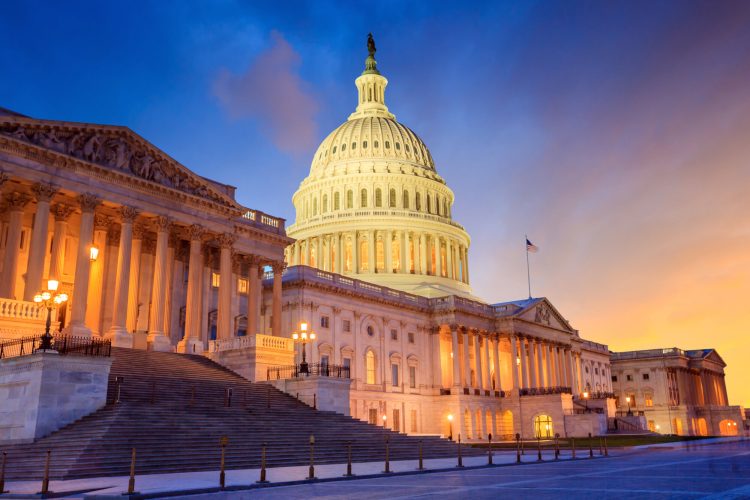This week on Facing the Future, we relied on a panel of Concord Coalition staff to help us break down the latest 10-year Budget and Economic Outlook released by the nonpartisan Congressional Budget Office. I gave my own interpretation of the baseline along with Concord’s policy director Tori Gorman, chief economist Steve Robinson, and our national field director Phil Smith. Communications Director Av Harris hosted the program so I could join the panel.
The major observations we made in the discussion can be found in The Concord Coalition’s initial statement on the report and in a longer issue brief.
The first major point we made is that even though the report shows a substantial decline in the deficits for 2022 and 2023, deficits begin rising again in 2024 and resume an upward path similar to the projected path the budget was on before the spikes in 2020 and 2021 caused by responses to the COVID pandemic.
“Overall, it’s not a ‘good news’ report,” I said. “What’s happening now is that we’re rejoining a pattern that we had before the pandemic, which was not a good pattern. It was one of underlying structurally rising budget deficits. It goes back to a ‘normal’ deficit that was over $1 trillion and as a percentage of GDP you’re looking at consistent deficits above 5 percent, hitting six percent within 10 years. The average deficit over the past 50 years has been 3.5 percent of GDP.”
There are also reasons why the new CBO projections could be an optimistic scenario. They assume no further spending on COVID or Ukraine; they assume that certain tax cuts enacted in 2017 will expire on schedule, and; they assume that the Federal Reserve Board will be able to tamp down inflation without causing a recession.
Gorman noted that the report shows a huge increase in projected revenues relative to the last CBO baseline report (July 2021). “They added about $3.3 trillion in revenues to the baseline over the next 10 years,” she said. That positive development was more than canceled out, however, by an even bigger increase in the spending baseline.
“The new forecast, based on legislation that we’ve already enacted, added almost $6 trillion in new spending to the baseline. So we got this huge revenue bump now and in future years but we’ve already spent it and more so. When you add the two together, the net sum is we’ve got about two and a half trillion more in deficits in this baseline than we did in last July’s baseline,” Gorman pointed out.
Another striking aspect of the new baseline is the big jump in interest on the debt, which Gorman called the “sleeping giant” in the budget. Over the next 10 years, CBO now projects that interest will nearly triple from a combination of higher debt and rising interest rates.
Turning to the economic assumptions, Robinson said that the baseline projections for inflation, which falls to slightly more than 2 percent (CPI) by 2024 from about 6 percent this year, indicates that “clearly the CBO is expecting the Fed to successfully engineer a reversal of what has been historically high inflation. Whether that comes to pass remains to be seen.”
Inflation impacts interest rates and both have been unusually low in recent years. “No one expects that is a sustainable long-term situation so CBO, I believe, is correctly assuming that interest rates will have to rise to provide a positive after-inflation rate of return” on government debt Robinson said.
Looking ahead, Robinson observed, “There is a real concern that as the debt grows it crowds out private investment and shrinks the economy relative to what it would otherwise be. But it’s important to distinguish between the debt held by the public, the debt held by the rest of the world, and the debt held by the Federal Reserve because each of those has a slightly different effect in terms of economic growth.”
Hear more on Facing the Future. I host the program each week on WKXL in Concord N.H., and it is also available via podcast. Join my guests and me as we discuss issues relating to national fiscal policy with budget experts, industry leaders, and elected officials. Past broadcasts are available here. You can subscribe to the podcast on Spotify, Pandora, iTunes, Google Podcasts, Stitcher, or with an RSS feed. Follow Facing the Future on Facebook, and watch videos from past episodes on The Concord Coalition YouTube channel.
Continue Reading








